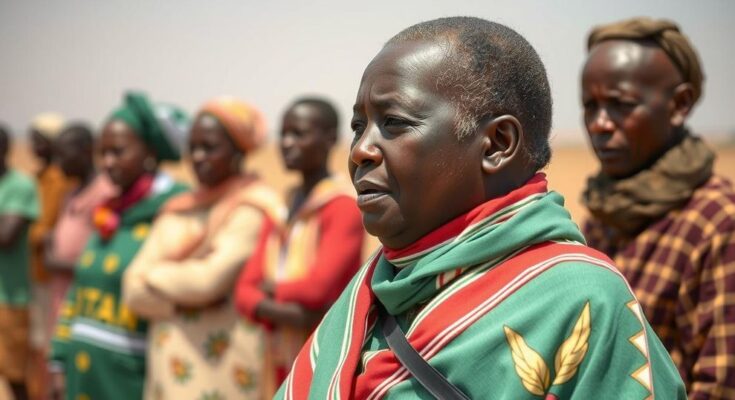The Sudanese government has rejected a UN-backed report claiming famine conditions in five regions due to ongoing conflict, which affects approximately 638,000 people. While over 24.6 million face acute food insecurity, the government criticized the report as speculative, alleging a lack of government consultation and access to field data. Constraints on humanitarian aid further impede response efforts in conflict zones.
The Sudanese government has firmly rejected a United Nations report which states that famine has affected five areas within the nation, amid ongoing conflict. The Integrated Food Security Phase Classification (IPC) indicated that approximately 638,000 individuals are currently facing famine, while an additional 8.1 million are on the verge of mass starvation due to the hostilities between the Sudanese military and the paramilitary Rapid Support Forces (RSF). In response, the foreign ministry labeled the IPC’s assessment as speculative and criticized the lack of input from government officials in the report’s formulation. Additionally, the government has been accused of obstructing humanitarian efforts and imposing bureaucratic barriers to aid delivery in regions controlled by the RSF. Amid ongoing violence, the humanitarian crisis has escalated dramatically, affecting more than 24.6 million citizens across Sudan, who are now experiencing acute food insecurity.
Currently, Sudan is embroiled in a civil conflict that has severely impacted its population and infrastructure. The violence, which erupted in April 2023, has pitted the Sudanese army against the RSF, leading to widespread instability and human suffering. Humanitarian organizations have reported significant challenges in accessing affected communities due to government restrictions and conflict dynamics. The IPC assessment serves as a critical tool for gauging food security, yet the Sudanese authorities’ denial of the report highlights tensions surrounding the management of international humanitarian assistance and response efforts.
In conclusion, the Sudanese government’s dismissal of the UN-backed famine declaration underscores a contentious relationship with international bodies and reflects ongoing challenges in addressing the severe humanitarian crisis exacerbated by civil conflict. With millions facing acute food insecurity, the situation necessitates urgent attention and collaborative efforts to facilitate humanitarian assistance, although government resistance complicates these endeavors.
Original Source: jordantimes.com




